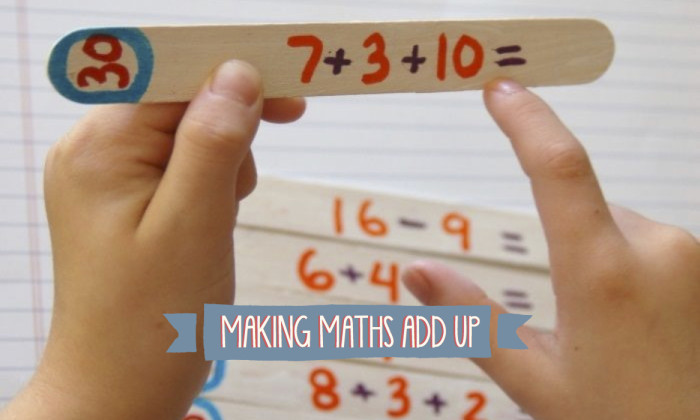
When girls and boys start school, they have been shown to have similar abilities in maths. Somewhere along the line, many students tend to get frustrated and turn away from it entirely. In fact, statistics show that for every 100 kids that will eventually go to college, only 44 will be ready to do maths at the college level. Despite having equal abilities, the problem becomes particularly worse for girls; less than a third of today’s college-bound females will choose a maths or science related career, such as finance, medicine, or any of today’s other top-paying jobs.
There seems to be a continual effort to make maths fun, or easier, or both. There were some years during my teaching career that schools would group all the ‘worst maths students’ into a classroom and mandate months of online maths games and wasteful competitions. When frustration continued, parents turned to outside tutorial centers and extra workbooks. Sometimes kids got a little better at maths, but rarely, if ever, did their attitudes towards the subject seem to improve.
So if ability or fun isn’t the problem, then what is it?
For starters, students often perceive themselves as incapable of learning maths. Their perceived ability to respond to a challenging problem has been shown to have more of an impact than their actual ability. There are several reasons for this, the most important one being that when students become anxious, their brain loses its ability to learn. Perhaps you’re able to recall the feeling of your mind “blanking out” on a test, even though you prepared for many hours. This is called “Math Anxiety”, and there are several books on the topic. Anxiety itself has a beautiful evolutionary purpose: to keep us alive. Yet, imagine yourself running, perhaps away from something scary, and then you’re asked: “what is 17 x 24?” It is likely that you’d need to stop running before your brain could begin to find an answer. Similarly, when a student feels they are not capable of doing maths, it is likely they will also feel anxious during class, and their brain will not let them learn until that feeling changes.
Second, parents do not always have a positive attitude towards maths either. Kids want to be like what they see around them, so if adults talk negatively about maths, the kids will too. Yet, maths does not need to be “fun”; your child will get plenty of satisfaction knowing that they worked hard to overcome an obstacle. When you reward their hard work, even if the solution is not yet correct, they are encouraged to keep working hard. Instead of “did you do your maths homework?” try a question like: “what did you do when you felt like giving up?” If we only reward correct solutions and ignore the long hours spent learning, kids will turn away. If we tell them that it should be fun, and they find it to be difficult, they may feel like they have missed something, or done something incorrectly.
How can I help my child enjoy maths?
For any subject that your kid doesn’t enjoy, including maths, there are two (pardon the pun) factors to consider: 1) the subject must link to something that they currently know and 2) they need to know why learning it matters.
First, talk about maths so that it links to something that they know already. Tell them how Facebook uses maths formulas to suggest friends and advertisements, or how their favorite song follows a pattern of beats per minute. Talk about how beauty is an expression of symmetry. Whether a flower or the night sky, there are mathematical formulas to describe why these look and act the way that they do. Neil Degrasse Tyson describes maths as “the language of the universe.” When he talks about gravity, people do not respond with “I’m bad at gravity” or “I’ll never use gravity.” To understand maths is to understand the universe, so it makes sense to talk about it in a way that is creative and exciting.
Most importantly, kids need to know why the subject that they are learning matters. How many times have children screamed “This is useless!” and we know that to some extent, they are correct? They may never need to know how to add or subtract; after all, the calculator isn’t going away. So, when they tell you they will never use it, remind them that life will be full of unexpected variables, problems, and sometimes the solutions we try will be incorrect. Attempting to solve a difficult problem, sometimes over and over again, builds the resilience, determination, and grit that define successful adults.
 View All
View All








 View All
View All




 View All
View All


 View All
View All









